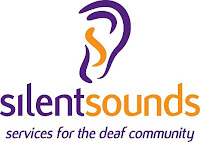With Deaf people, you get attention by gently waving your hand in their line of sight, tapping them on the forearm or moving into their field of vision. You can also gain attention by tapping on the desk or table and by flicking the lights on and off quickly. Try not to approach from behind, never touch on the back or head and DO NOT SHOUT!
If you would like more information, please check our website http://www.silent-sounds.co.uk/blog.php or call our office and speak to one of our helpful staff.
If you would like more information, please check our website http://www.silent-sounds.co.uk/blog.php or call our office and speak to one of our helpful staff.







